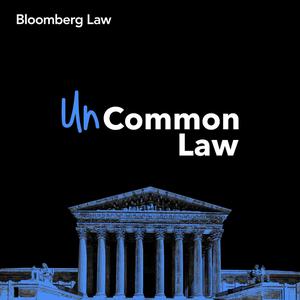
UnCommon Law
Bloomberg Industry Group
Winner of the American Bar Association Silver Gavel Award for Media and the Arts
- 22 minutes 29 secondsBONUS: How Quinn Emanuel Lawyers Save 50 Billable Hours With One Click
Generative AI has promised to reshape the practice of law ever since ChatGPT emerged. However, it's been unclear just how large law firms are using AI. Has it changed how practitioners do their jobs on a daily basis? Are we witnessing the emergence of a revolution in how lawyers do their work?
Uncommon Law's Matthew Schwartz sits in as guest host on this episode of On the Merits. He talks with John Quinn, founder and chair of Quinn Emanuel Urquhart & Sullivan, as they discuss his firm's stance on artificial intelligence and the future of the billable hour.
21 November 2024, 5:05 pm - 37 minutes 26 seconds6. From Errors to Efficiency: Can AI Transform the Practice of Law?
In the season finale of UnCommon Law, we explore the power of AI to transform legal practice. Featuring insights from top law professors, a federal judge, and industry leaders like John Quinn, founder of Quinn Emanuel, we ask: Can AI’s promise of efficiency overcome its risks—and redefine the future of law?
Guests:
- John Quinn, founder of Quinn Emanuel Urquhart & Sullivan, LLP
- Daniel Ho, professor of law and computer science at Stanford University
- David Hoffman, professor of law at the University of Pennsylvania Carey Law School
- Isabel Gottlieb, reporter for Bloomberg Law covering AI and issues impacting corporate legal departments
UnCommon Law is hosted and produced by Matthew S. Schwartz.
31 October 2024, 10:00 am - 30 minutes 2 seconds5. AI Dilemma: Can US Legislators Take Action Before It's Too Late?
Deepfakes. Disinformation. Algorithmic bias. Job displacement. These are just some of the harms legislators and regulators worry about when they think about how to tackle the risks posed by artificial intelligence.
The first episodes of this season of UnCommon Law deal with generative AI in the copyright law context, since the technology uses massive amounts of copyright protected work. But while copyright law might be the beginning, there's so much more to the story of generative AI and the law.
In this episode, we examine what the government might do to ensure that 21st century life doesn't turn into a dystopian future.
Guests:
- Cary Coglianese, director of the Penn Program on Regulation at the University of Pennsylvania Carey Law School
- Oma Seddiq, tech policy reporter for Bloomberg Government
- Isabel Gottlieb, reporter for Bloomberg Law covering AI and issues impacting corporate legal departments
18 September 2024, 9:00 am - 32 minutes 58 seconds4. Artists Argue AI Art Illegally Steals Work and Threatens Careers
The US copyright system encourages human creativity. So does it make sense to grant a copyright to work created by AI with the click of a button? And, if AI generated artwork is given copyright protection, how would that impact the livelihoods of creative professionals?
In our last episode, we looked at Jason Allen’s AI-generated artwork, "Théatre D’opéra Spatial," and the arguments why it should have some copyright protection. This time, we examine the other side – the most powerful arguments for why AI-generated work should never be eligible for copyright.
Guests:
- Jason M. Allen, founder of Art Incarnate
- Sy Damle, partner in the copyright litigation group at Latham & Watkins
- Karla Ortiz, artist
- Kelly McKernan, artist
- Delanie West, advocacy liaison for the Graphic Artists Guild
- Genel Jumalon, artist
24 July 2024, 2:52 pm - 37 minutes 8 seconds3. You Can Create Award-Winning Art With AI. But Can You Copyright It?
The art world was rattled when Jason M. Allen won first place in the Colorado State Fair for "Théatre D’opéra Spatial" — digital artwork created with artificial intelligence.
Allen had revised his text prompts hundreds of times before landing on the final work; Allen considers Space Opera Theater his creation. But some artists hated his victory. "They were saying I was falsely attributing authorship to something I did not create," Allen said.
After winning, he submitted the image to the US Copyright Office for a state-issued seal of approval, an official document certifying that the artwork was indeed his creation. Would the Copyright Office agree?
We delved into the controversy surrounding the use of copyrighted material in training AI systems in our first two episodes of this season. Now we shift our focus to the output. Who owns artwork created using artificial intelligence? Should our legal system redefine what constitutes authorship? Or, as AI promises to redefine how we create, will the government cling to historical notions of authorship?
Guests:
- Jason M. Allen, founder of Art Incarnate
- Sy Damle, partner in the copyright litigation group at Latham & Watkins
- Shira Perlmutter, Register of Copyrights and director of the US Copyright Office
5 June 2024, 10:00 am - 27 minutes 15 seconds2. AI Trained on Famous Authors’ Copyrighted Work. They Want Revenge – Part 2
Generative AI tools are already promising to change the world. Systems like OpenAI's ChatGPT can answer complex questions, write poems and code, and even mimic famous authors with uncanny accuracy. But in using copyrighted materials to train these powerful AI products, are AI companies infringing the rights of untold creators?
This season on UnCommon Law, we'll explore the intersection between artificial intelligence and the law. On episode one, we learned about the lawsuits filed against AI companies that trained their large language models on copyrighted work without permission. Now we'll learn about the legal defense that could give the AI companies a pass to continue scraping up whatever content they want, copyright-protected or not.
Guests:
- Matthew Butterick, founder at Butterick Law, and co-counsel with the Joseph Saveri Law Firm on class-action lawsuits against OpenAI and others
- Isaiah Poritz, technology reporter for Bloomberg Law
- Matthew Sag, professor of law and artificial intelligence, machine learning and data science at Emory University School of Law
- Mark Lemley, professor of law at Stanford Law School and the director of the Stanford Program in Law, Science and Technology, who is also representing Meta and Stability AI in the copyright cases against them
- James Grimmelmann, professor of digital and information law at Cornell Tech and Cornell Law School
27 March 2024, 9:01 am - 27 minutes 30 seconds1. AI Trained on Famous Authors’ Copyrighted Work. They Want Revenge – Part 1
Generative AI tools are already promising to change the world. Systems like OpenAI's ChatGPT can answer complex questions, write poems and code, and even mimic famous authors with uncanny accuracy. But in using copyrighted materials to train these powerful AI products, are AI companies infringing the rights of untold creators?
This season on UnCommon Law, we'll explore the intersection between artificial intelligence and the law. Episode one examines how large language models actually ingest and learn from billions of online data points, including copyrighted works. And we explore the lawsuits filed by creators who claim their copyrights were exploited without permission to feed the data-hungry algorithms powering tools like ChatGPT.
Guests:
- Matthew Butterick, founder at Butterick Law, and co-counsel with the Joseph Saveri Law Firm on class-action lawsuits against OpenAI and others
- Isaiah Poritz, technology reporter for Bloomberg Law
- James Grimmelmann, professor of digital and information law at Cornell Tech and Cornell Law School
27 March 2024, 9:00 am - 26 minutes 48 secondsCan a Haunted House Go Too Far? 'Carrie' Scare Leads to Lawsuit
When Scott Griffin visited the Haunted Trail, he expected to be scared. But he did not expect what happened after he thought the scare was over.
This special Halloween episode of UnCommon Law tells the true story of a man terrorized by a haunted house attraction. Griffin bought a ticket to a haunted house — but ended up getting more than he bargained for: two broken wrists. He sued for negligence and assault. Can someone who paid to be frightened sue when things go too far?
Guests:
- P. Christopher Ardalan, attorney at Ardalan & Associates, PLC
- Larry Levine, law professor at the University of the Pacific McGeorge School of Law
19 October 2023, 3:03 pm - 47 minutes 10 seconds5. If Lina Khan's FTC Bans Noncompete Clauses, What Happens Next?
In the conclusion of UnCommon Law's season-long exploration of noncompete agreements, we look at the Federal Trade Commission's authority to ban the clauses nationwide.
We’ve reviewed how the ban would work and explored the policy arguments for and against it. Now we delve into a more fundamental question: Does the FTC even have the power to make a substantive rule like this one?
It's been 50 years since the DC Circuit Court of Appeals ruled that the FTC has substantive rulemaking power. We’ll learn about that case — National Petroleum Refiners Association v. FTC — we’ll find out why it’s so important to the FTC, and we’ll hear why many believe it would not turn out the same way today.
But that's not all! Even if courts follow National Petroleum, could the FTC get past the major questions doctrine?
The season finale of UnCommon Law features:
- Richard Pierce, professor at the George Washington University Law School
- Dan Papscun, antitrust reporter for Bloomberg Law
- Sean Heather, senior vice president at the U.S. Chamber of Commerce
- Sandeep Vaheesan, legal director at the Open Markets Institute
- Orly Lobel, professor at the University of San Diego School of Law
- Matt's baby
3 August 2023, 9:00 am - 28 minutes 14 secondsSPECIAL REPORT: The End of Affirmative Action in College Admissions
The Supreme Court has effectively ended the use of race as a factor in college admissions.
In a 6-3 ruling, along ideological lines, the divided Supreme Court struck down the admissions programs of Harvard and the University of North Carolina, which both used race as a factor in their admissions process.
Today, on this special edition of UnCommon Law, we’ll learn how the court came to its decision. And: Did the majority leave the door open for colleges to still consider race in some circumstances? We’ll learn why some supporters of affirmative action still have a glimmer of hope.
Featuring:
- Ted Shaw — Professor at the University of North Carolina, and past president of the NAACP’s Legal Defense Fund
- Michelle Adams — Professor at the University of Michigan Law School
- Lee Bollinger — Outgoing president of Columbia University, and former president of the University of Michigan
- Edward Blum, president of Students for Fair Admissions
1 July 2023, 4:30 am - 30 minutes 28 seconds4. The Case Against the FTC's Proposed Ban on Noncompetes
In its proposal to ban noncompete agreements nationwide, the Federal Trade Commission has touted the potential benefits to workers and the economy. But how would a ban impact business owners?
This week on UnCommon Law, part four of our series on the agency's proposal. Why are so many business owners so adamant that they need to be able to use noncompetes, even when other legal tools — like trade secret laws and nonsolicitation agreements — might protect companies without limiting employee mobility?
Featuring:
- Russell Beck, trade secrets and employment mobility lawyer; founder at Beck Reed Riden LLP
- Paul Dacier, EVP and general counsel at Indigo Agriculture; formerly EVP and general counsel at EMC Corporation
- Syreeta Mitchell, president and CEO of MPower Logistics
28 June 2023, 9:24 pm - More Episodes? Get the App
Your feedback is valuable to us. Should you encounter any bugs, glitches, lack of functionality or other problems, please email us on [email protected] or join Moon.FM Telegram Group where you can talk directly to the dev team who are happy to answer any queries.
 The Daily
The Daily
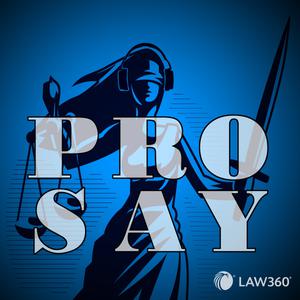 Law360's Pro Say - News & Analysis on Law and the Legal Industry
Law360's Pro Say - News & Analysis on Law and the Legal Industry
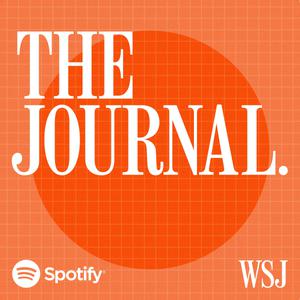 The Journal.
The Journal.
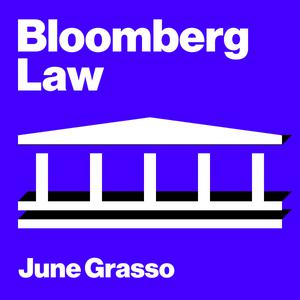 Bloomberg Law
Bloomberg Law
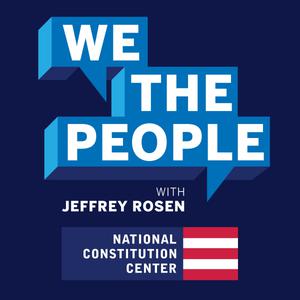 We the People
We the People
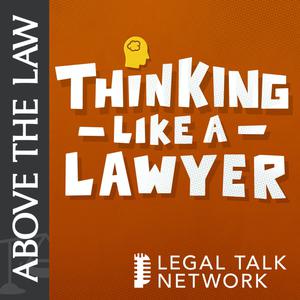 Above the Law - Thinking Like a Lawyer
Above the Law - Thinking Like a Lawyer